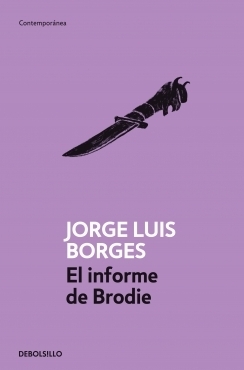What do you think?
Rate this book


176 pages, Paperback
First published January 1, 1970
…the generations of men, throughout recorded time, have always told and retold two stories – that of a lost ship which searches the Mediterranean seas for a dearly loved island, and that of a god who is crucified on Golgotha.
Even after their gauchos were dust, the knives – the knives, not their tools, the men – knew how to fight. And that night they fought well.
Every male born into the tribe is subjected to a painstaking examination; if he exhibits certain stigmata, the nature of which were not revealed to me, he is elevated to the rank of king of the Yahoos. So that the physical world may not lead him from the paths of wisdom, he is gelded on the spot, his eyes are burned, and his hands and feet are amputated.


"There is not a simple page, a simple word, on earth - for all pages, all words, predicate the universe, whose most notorious attribute is its complexity."
"That old man was something. I'll tell you - the stories he'd tell...Not so as to fool anyone, of course - just to be entertaining."
"In the years that followed, I thought more than once about confiding the story to a friend, but I always suspected that I derived more pleasure from keeping the secret than I would from telling it."
"Who can say whether the story ends here; who can say that they will never meet again?"
"Her room smelled musty. In one corner stood the iron bed, with a rosary hanging on one of the bedposts; in another, the wooden wardrobe for her clothes. On one of the whitewashed walls there was a lithograph of the Virgen del Carmen. A candlestick sat on the nightstand."